

Story
사랑의 실천을 나침반으로
글로벌 체인지메이커를 키우다
Nurturing Global Changemakers with “Love in Deed and Truth” as Our Compass
글로벌사회혁신단장 신현상 교수(경영학부)
Prof. Shin Hyun-sang, Vice President, Global Social Innovation Foundation
(Department of Business Administration)
- 글 김현지
- 사진 손초원
- Writing Kim Hyun-ji
- Photograph Son Cho-won
Scroll Down
In 2015, the United Nations (UN) established the 17 Sustainable Development Goals (SDGs) based on universal human issues, global environmental issues, and economic and social issues that we need to address. Social innovation refers to new and effective solutions to meet these challenges. We will examine Hanyang University's vision of spreading the value of social innovation worldwide by establishing the first Global Social Innovation Foundation among domestic universities.
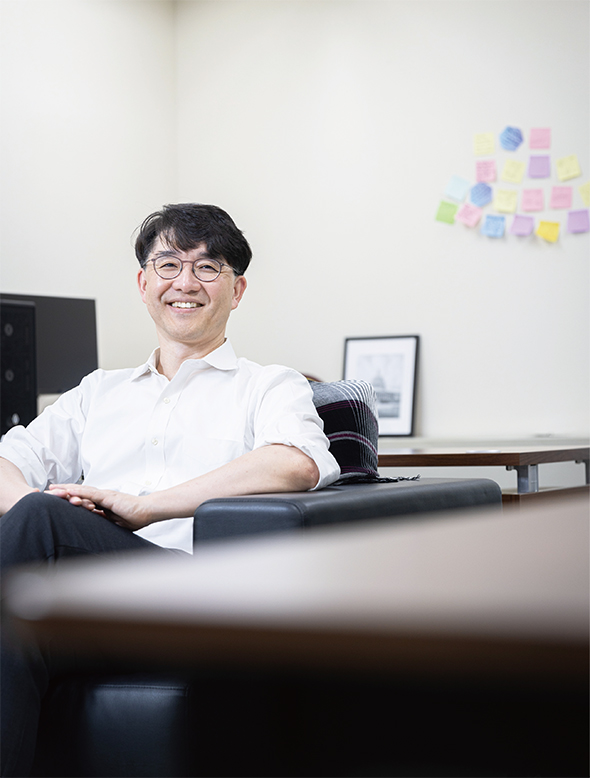
국내를 넘어 세계로 나아가는 사회혁신 활동
혁신은 주로 비즈니스 분야에서 활용돼 온 개념이다. 혁신적인 제품과 서비스를 제공하는 기업은 고객의 선택을 받고 더 큰 매출을 올리게 된다. 이런 기업의 혁신은 인류의 삶을 바꾸는 데도 기여한다. 하지만 기업의 목적은 이익창출 극대화. 돈이 되지 않는, 소외된 이들의 문제는 뒷전이 될 수밖에 없다. 이에 정부가 세금으로 예산을 편성하고 다양한 사회문제 해결에 나서지만 행정력만으로는 한계가 있다. 1990~2000년대에 많이 등장한 NGO도 기부금에 의존하기 때문에 운신에 한계가 발생한다.
“다양한 문제로 고통받는 이들을 더 적극적으로, 효과적이고, 효율적으로 돕기 위해 사회혁신 개념이 형성됐습니다. 사실 한양대는 오래전부터 건학이념인 ‘사랑의 실천’을 바탕으로 사회혁신을 실천해 왔습니다. 1994년 국내 대학 최초로 사회봉사단을 창단하고 대한민국의 사회혁신을 이끌었지요. 한양대의 사회혁신 활동이 세계로 영역을 넓히는 것은 자연스러운 수순입니다.”
한양대는 지난해 7월 총장 직속 기관으로 글로벌사회혁신단을 설립했다. 사회봉사단 창단 이후 30년간 쌓아온 사회혁신 역량을 전 세계를 무대로 펼치겠다는 의지의 표현이다. 글로벌사회혁신단장을 맡은 신현상 교수는 글로벌 시대를 살아가는 이상 범세계적, 전 지구적 문제에서 자유로울 수 없다고 말했다. 또 국격이 높아진 만큼 글로벌 사회문제 해결에도 관심을 기울여야 한다고 강조했다.
“혁신적이라고 평가하려면 기존의 것과 크게 달라지거나 아예 새로워야 합니다. 또 단순히 좋아지는 게 아니라 월등히, 탁월하게 좋아져야 해요. 우리가 추진해야 할 사회혁신 역시 새롭고도 탁월해야 합니다. 많은 이들의 동참과 노력, 참신한 아이디어와 전문성이 필요한 일이죠. 한양인들이 전 세계 청년들과 어깨를 나란히 하며 소셜임팩트를 구현하고, 새로운 가치를 만들며, 글로벌 시대의 주역이 되도록 이끄는 것이 글로벌사회혁신단의 목적입니다. 한양대가 쌓아온 국제화 역량과 사회혁신 역량이 합쳐지면 큰 시너지를 발휘하리라 생각합니다.”
Social innovation activities beyond Korea to the world
Innovation is a concept mainly applied in the business sector. Companies providing innovative products and services are selected by customers, achieving greater profit.
Corporate innovation also contributes to changing human lives. However, the primary goal of companies is profit maximization. Issues concerning those companies that are not profitable, or people who are underprivileged, are often sidelined. Although the government allocates budgets with taxes and engages in solving various social issues, administrative capabilities alone have limitations. NGOs, which emerged frequently in the 1990s and 2000s, also faced limitations in their operations because they relied on donations. Prof. Shin explained:
“To more actively, effectively, and efficiently assist those suffering from various problems, the concept of social innovation has emerged. In fact, Hanyang University has been practicing social innovation based on its founding philosophy of ‘Love in Deed and Truth’ for a long time. By establishing the first volunteer corps in a domestic university in 1994, Hanyang University led the way in social innovation in Korea. The expansion of Hanyang University's social innovation activities to the global stage is a natural progression.”
Last July, Hanyang University established the Global Social Innovation Foundation under the direct supervision of the president. This demonstrates the university's determination to showcase its social innovation capabilities accumulated over the past 30 years since the establishment of the volunteer corps on the global stage.
Professor Shin Hyun-sang, appointed as Vice President, the Global Social Innovation Foundation, empasized that in the global era, one cannot be free from global or universal issues. Furthermore, he emphasized that as Korea's international status rises, attention must also be paid to resolving global social issues:
“To be considered innovative, something must significantly differ from or be entirely new compared to existing concepts. It should not simply improve but excel significantly. The social innovation we must pursue should also be new and excellent. This requires the participation and efforts of many individuals, as well as innovative ideas and expertise. The goal of the Global Social Innovation Foundation is for Hanyang students to stand shoulder to shoulder with young people worldwide, realize social impacts, create new values, and lead the way in the global era. I believe that when Hanyang University's globalization capabilities and social innovation capabilities come together, they will create significant synergy.”
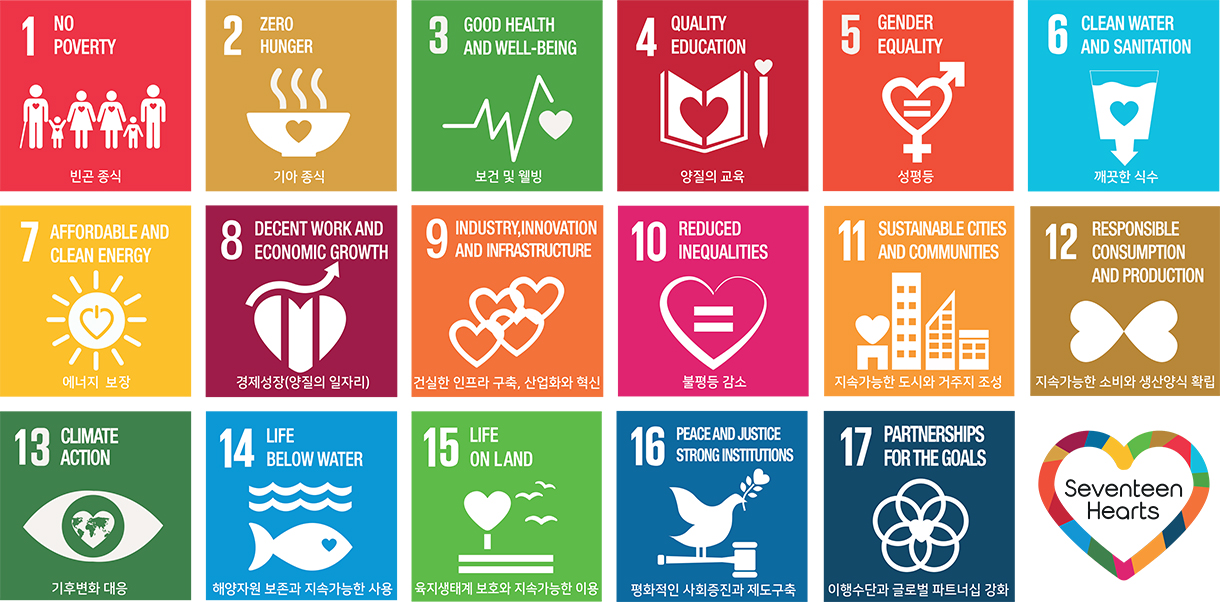
아시아 유일의 체인지메이커 캠퍼스, 한양
한양대는 2018년 4월 국내 대학 최초이자 동아시아 최초로 아쇼카U(Ashoka U)의 ‘체인지메이커 캠퍼스’로 선정됐다. 이는 세계적인 사회혁신 선도 대학이란 인증과 같다. 꾸준히 사회혁신 활동을 펼쳐온 한양대의 진정성이 큰 결실로 이어진 것이다. 체인지메이커 캠퍼스는 세계 최대 사회혁신가 네트워크를 통해 사회문제를 해결하고, 창의적인 사회혁신 기업가를 발굴해 지원하는 아쇼카(Ashoka)의 고등교육기관 대상 프로그램이다.
“아쇼카라는 단어는 인도의 성군으로 알려진 ‘Ashoka’ 왕에게서 따온 것입니다. 산스크리트어로 ‘고통이 줄어든다’는 의미도 있죠. 사회문제 해결로 사람들의 고통을 줄이는 사회혁신과 연결돼 있습니다. 아쇼카는 ‘모두가 체인지메이커인 세상’이라는 비전을 가진 글로벌 비영리 단체입니다.”
신현상 교수는 아쇼카의 활동이 물고기 잡는 법을 알려주는 것에 그치지 않고, 아예 수산업 구조 자체를 바꾸는 시스템 체인지를 지향한다고 설명했다. 아쇼카는 1980년부터 지금까지, 4천 명 이상의 아쇼카 펠로우를 선정해 지원했다. 이들은 세계 곳곳에서 다양한 사회혁신을 펼치면서 선한 영향력을 전파해 왔다. 이들 중 노벨상 수상자가 3명이나 나왔다. 한국에는 △학교폭력 문제를 수면 위로 올려 관련 법안 제정을 이끈 푸른나무재단 김종기 이사장 △장애나 열악한 환경 등으로 학습이 어려운 아이들의 교육격차 해소를 위해 교육용 앱을 개발한 에누마(ENUMA) 이수인 대표 △가정과 학교, 사회로부터 소외된 청소년을 보호하고 본드나 마약 같은 중독에서 벗어나게 돕는 세품아(SEPUMA) 명성진 이사장 △청년들의 귀촌을 지원하는 팜프라(FARMFRA) 유지황 대표 등 15명의 아쇼카 펠로우가 활약 중이다.
아쇼카 펠로우가 4천 명 이상이라 해도, 전 세계 인구에 비하면 턱없이 적은 비율. 이 때문에 아쇼카는 사회혁신을 더욱더 확산하기 위해 2008년 체인지메이커 캠퍼스 시스템을 만들었다. 체인지메이커 캠퍼스는 학생들이 급변하는 사회에 대응하는 체인지메이커로서 잠재력을 실현하고, 긍정적인 사회변화를 이끌어가도록 지원한다. 학생, 동문, 교수, 직원 등 수많은 구성원이 사회혁신의 가치로 움직이며, 꾸준히 네트워킹을 넓히는 체인지메이커 캠퍼스의 역할은 중요할 수밖에 없다.
“체인지메이커 캠퍼스 선정 기준은 굉장히 까다롭습니다. 100개 이상의 세부 항목을 모두 통과해야 해요. 이 때문에 관련 인증을 받은 곳이 전 세계에 30여 개 대학뿐입니다. 그중 한 곳이 한양대죠. 한양대는 지난 3월 아쇼카 재인증과 관련해 ‘넥스트 임팩트 포럼@아쇼카 위크(Next Impact Forum@Ashoka Week)’를 진행했습니다.”
한양대는 공동체에 대한 책임감(Public Mind), 창의적 가치창출 역량(Value Creation), 실천을 위한 자원연계 역량(Global Networking) 등 3대 핵심역량을 갖춘 체인지메이커 양성 기관이다. 현재 아시아에서 유일한 체인지메이커 캠퍼스로서 글로벌 위상을 높이고 있다.
Asia's Only Changemaker Campus, Hanyang University
In April 2018, Hanyang University was selected as the first university in Korea and East Asia to become an Ashoka U Changemaker Campus. This designation is akin to certification as a global leader in social innovation. It is the result of Hanyang University's sincere commitment to social innovation activities. The Changemaker Campus program by Ashoka, targeting institutions of higher education, aims at resolving social issues through the world's largest social innovation network and discovering and supporting creative social innovation entrepreneurs.
“The word ‘Ashoka’ is derived from the Indian emperor Ashoka, known for his compassionate rule. It also contains the meaning of ‘reducing suffering’ in Sanskrit, which is closely linked to social innovation, reducing people's suffering by solving social issues. Ashoka is a global non-profit organization with a vision of a world in which everyone is a changemaker.”
Professor Shin went on to explain that Ashoka’s activities aim not only to teach people how to fish, but also to change the entire fisheries system. Since 1980, Ashoka has selected and supported over 4,000 Ashoka Fellows who have spread their positive influence worldwide through various social innovations. And three of them won the Nobel Prize. In Korea, there are 15 Ashoka Fellows, including △ Jong-ki Kim, Chairman of the Blue Tree Foundation, who raised awareness of school violence issues and led the enactment of related legislation, △ Sooinn Lee, CEO of ENUMA, who developed an educational app to bridge the education gap for children facing disabilities or poor learning environments, △ Myung Sung-jin, CEO of SEPUMA, who protects socially marginalized youth from addiction to drugs such as glue, and △ Yoo Ji-hwang, CEO of FARMFRA, who supports young people returning to rural areas.
Despite having over 4,000 Ashoka Fellows, they represent only a tiny proportion of the world's population. Therefore, to further disseminate social innovation, Ashoka created the Changemaker Campus system in 2008. The Changemaker Campus supports students to realize their potential as changemakers who adapt to the rapidly changing society and lead positive social changes. The role of the Changemaker Campus, where numerous members such as students, alumni, professors, and staff move forward with the values of social innovation and continuously expand networking, is undeniably important.
“The criteria for selecting Changemaker Campus are very stringent. It requires passing over 100 detailed items. As a result, there are only about 30 certified institutions worldwide, and Hanyang University is one of them. In March, Hanyang University conducted the ‘Next Impact Forum@Ashoka Week’ in relation to Ashoka recertification.”
Hanyang University is a Changemaker training institution with three core competencies: a sense of responsibility toward the community (Public Mind);
capabilities for creative value creation (Value Creation); and resource integration capabilities for action (Global Networking). It is enhancing its global reputation as the only Changemaker Campus in Asia.
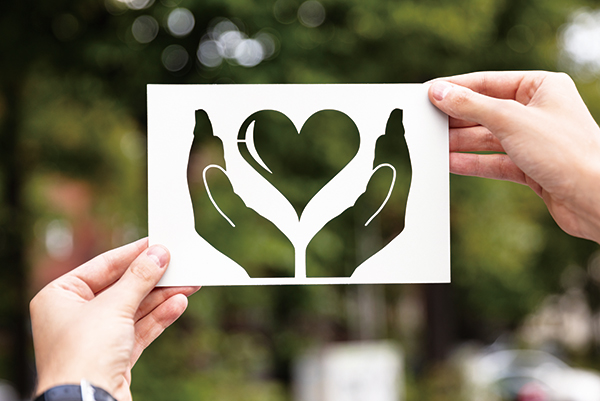
체인지메이커를 키우는 글로벌사회혁신단의 활약으로 한양대의 ‘사랑의 실천’ 정신, 사회혁신 역량, 글로벌 비전이 큰 시너지를 내며 세상을 바꿔 갈 것이다
Through the activities of the Global Social Innovation Foundation in nurturing Changemakers, Hanyang University’s spirit of “Love in Deed and Truth,” social innovation capabilities, and its global vision will change the world with great synergy.
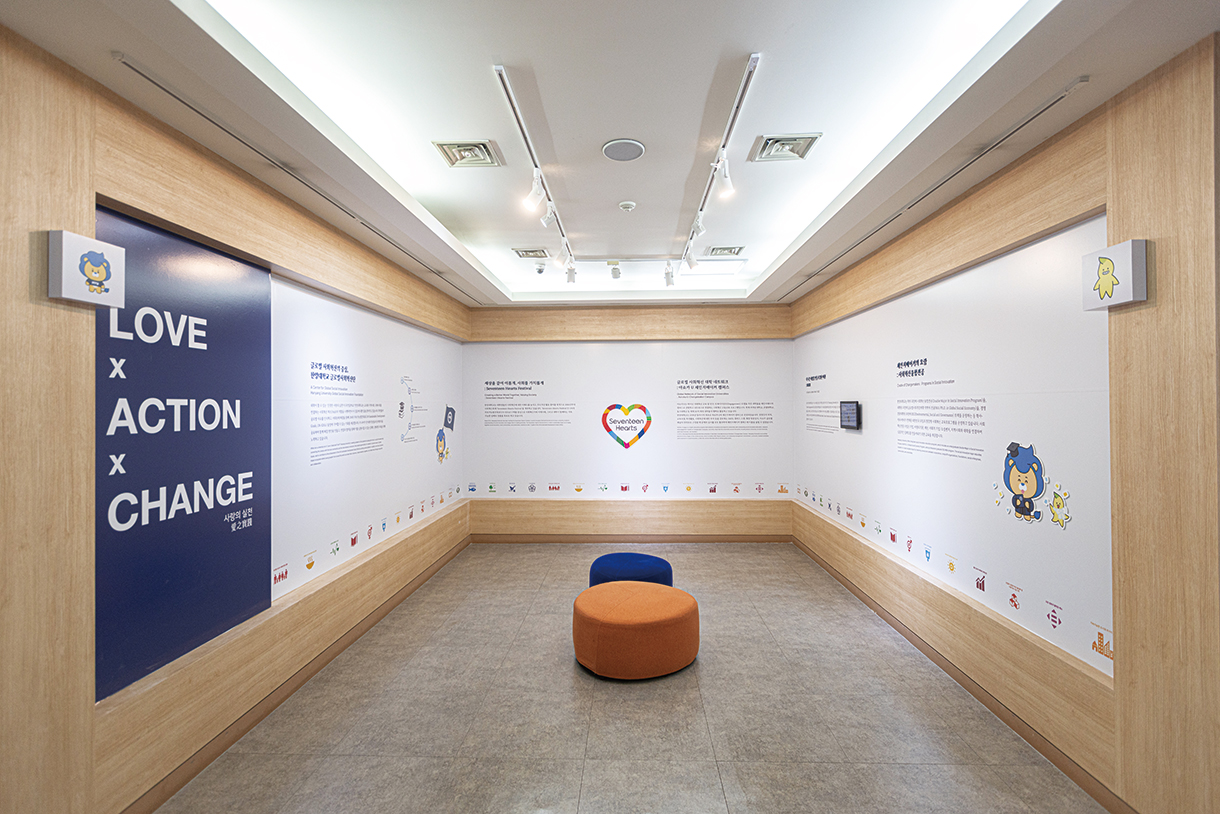
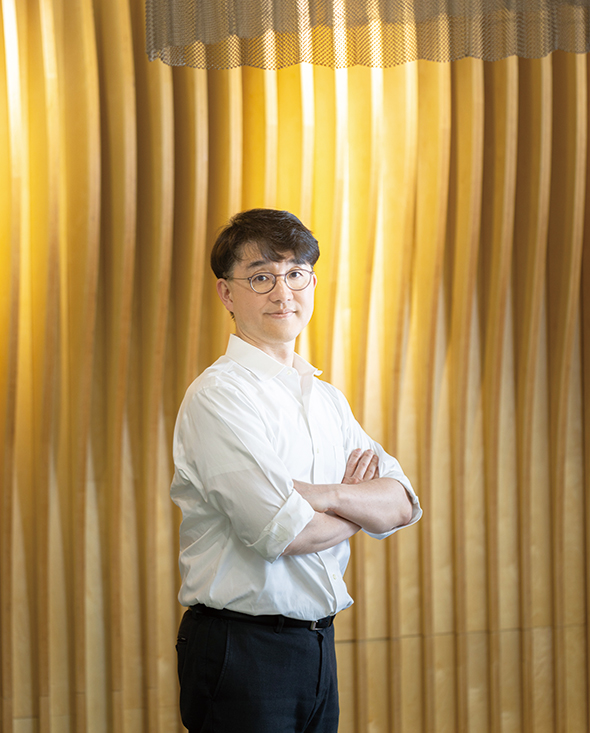
‘사랑의 실천’으로 세상을 혁신하라
체인지메이커 캠퍼스로 선정된 후 한양대는 사회혁신 전파에 기여하고자 적극적으로 노력해 왔다. 세계적인 사회혁신 분야 정론지 ‘스탠퍼드 소셜 이노베이션 리뷰(SSIR)’의 한국어판 발간을 맡은 것도 그 일환이다. 1년에 네 차례 발행되는 책자를 통해 해외의 우수한 사회혁신 사례를 국내에 전하고, 동시에 국내의 참신한 사회혁신 사례를 해외에 알린다. 2018년부터 현재까지 5년 이상 파트너십을 이어가며 글로벌 사회혁신 확산에 이바지하고 있다.
“SSIR의 콘텐츠는 전문성과 높은 지식이 요구돼 어려운 편입니다. 글로벌 오피니언 리더, 사회혁신에 가치를 둔 재단이나 비영리 조직, 기업의 CSR/ESG 담당자들이 주 타깃이죠. 선진국에서 우리보다 5년, 10년 먼저 고민한 내용들이 포함돼 있어 사회혁신 생태계 발전에 큰 도움이 됩니다.”
한양대 글로벌사회혁신단은 지난해 11월 국내 대학 중 최초이자 유일하게 UN 산하 공식기구인 유엔산업개발기구(UNIDO)의 ‘4차 산업혁명 얼라이언스 파트너십’에도 가입했다. 4차 산업혁명 관련 기술을 가진 선진국이 개도국의 산업 개발에 협력하자는 취지로 마련된 것이다. 한양대는 학교의 첨단 기술이 개도국의 사회혁신에 빛을 발할 수 있게 UNIDO와 다각도로 협력할 방침이다. 이는 초저출산 시대를 맞은 대한민국의 새로운 시장이자 글로벌 우방을 만드는 효과도 있다. 사회적 가치와 경제적 가치, 더블 임팩트를 창조하는 활동이 될 것이라 기대를 모은다.
한양대의 사회혁신은 해외 유수의 사례를 벤치마킹하던 1.0에서 내실을 다진 2.0을 너머 이제 3.0 단계로 나아가고 있다. 신현상 교수는 글로벌사회혁신단의 설립이 한양대 사회혁신 3.0의 출발이자 변곡점이 될 것이라 전망했다.
“학교의 건학이념인 ‘사랑의 실천’ 정신과 사회혁신, 글로벌이 합쳐져 더 큰 시너지를 만들어 갈 것으로 생각합니다. 건학이념은 한양대의 나침반과 같습니다. 학교가 어디로 가야 할지를 알려주죠. 우리의 본질이 무엇인지, 존재 이유가 무엇인지, 존재 목적이 무엇인지 고민해야 합니다. 이런 고민을 통해 한양인들이 ‘사랑의 실천’ 정신으로 무장한 체인지메이커로서 세상을 혁신해 가길 기대합니다.”
Innovate the world through “Love in Deed and Truth”
Since being designated as a ChangeMaker Campus, Hanyang University has actively endeavored to contribute to the spread of social innovation. The publication of the Korean edition of the prestigious global social innovation journal, the Stanford Social Innovation Review (SSIR), was part of its initiatives. Through the publication of quarterly booklets, they share outstanding social innovation cases from abroad in Korea, while also informing overseas audiences about innovative social initiatives in Korea. Since 2018, they have maintained partnerships for over five years, contributing to the global spread of social innovation.
Prof. Shin added, “The content of SSIR requires high expertise and knowledge, so it is challenging. Its primary target audience includes global opinion leaders, foundations or non-profit organizations valuing social innovation, and CSR/ESG professionals from corporations. It contains discussions that advanced countries pondered five to ten years before us, which greatly benefit the development of the social innovation ecosystem.”
In November last year, Hanyang University’s Global Social Innovation Foundation became the first and only university in Korea to join the Fourth Industrial Revolution Alliance Partnership of the United Nations Industrial Development Organization (UNIDO), an official UN agency. This aims to facilitate cooperation among developed countries with fourth industrial revolution-related technologies and developing countries for industrial development. Hanyang University plans to collaborate with UNIDO in various ways to help social innovation of developing countries with the school's cutting-edge technologies. This is also expected to create a new market and global partnerships for Korea in the ultra-low birthrate era. It is anticipated to be an activity that creates a double impact in both social and economic values.
Hanyang University's journey of social innovation, which initially benchmarked overseas examples in Phase 1.0, strengthened its foundation in Phase 2.0, and is now advancing into Phase 3.0. Professor Shin Hyun Sang forecasted that the establishment of the Global Social Innovation Foundation would mark a new beginning and be a turning point for Hanyang University’s Social Innovation 3.0.
“I believe that the spirit of ‘Love in Deed and Truth,’ the founding philosophy of the university, combined with social innovation and globalization, will create even greater synergy. The founding philosophy serves as our compass. It guides the direction of the university, We need to contemplate our essence, our reason for existence, and our purpose. Through such contemplation, I hope Hanyang students will innovate the world as Changemakers armed with the spirit of ‘Love in Deed and Truth.’”
